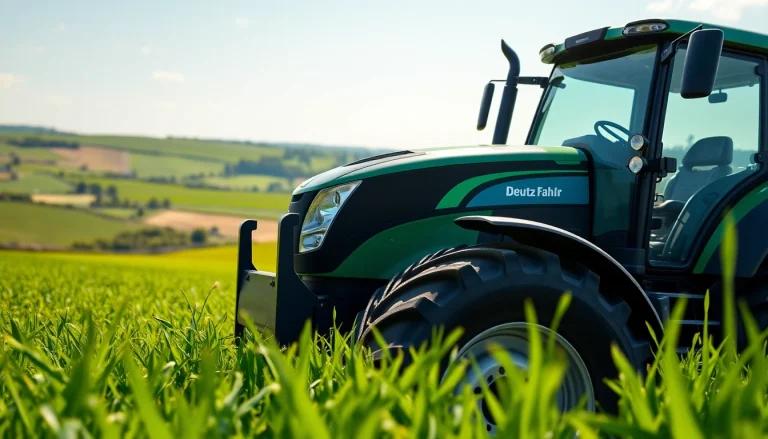Understanding NVQ Level 4 Crane Supervisor Answers
The NVQ Level 4 in Crane Supervision is an essential qualification for professionals in the construction and crane operation industries. As a candidate pursuing this qualification, understanding the components involved is paramount. This article aims to provide clarity on the NVQ Level 4 Crane Supervisor answers, the significance of the qualification, and methods to optimize your study and assessment preparation. For an in-depth collection of guides and answers related to the NVQ Level 4 Crane Supervisor, refer to NVQ Level 4 Crane supervisor answers.
What is NVQ Level 4?
The National Vocational Qualification (NVQ) Level 4 represents a significant achievement for individuals in vocational careers, specifically in the operations and management of lifting activities. This level focuses on the skills required to supervise crane operations efficiently, ensuring that safety and compliance are at the forefront. Achieving an NVQ Level 4 demonstrates that an individual can assess risks, manage lifting operations, and ensure that legal responsibilities are met in various contexts.
The Importance of Crane Supervisor Qualification
With the ever-increasing complexity of lifting operations on construction sites, the role of a crane supervisor has become more critical than ever. This qualification serves not only as a testament to one’s expertise but also provides a framework for adhering to best practices in crane operations. Supervisors play a pivotal role in ensuring that all lifting activities are conducted safely, efficiently, and in compliance with laws and regulations. Moreover, possessing this qualification can open doors to career advancement and higher responsibilities in the construction sector.
Benefits of Using Prepared Answers
Utilizing prepared answers for the NVQ Level 4 is beneficial for several reasons. Firstly, it provides candidates with a resource to understand how to frame their answers based on industry standards. This is crucial during assessments where well-structured responses can make all the difference. Secondly, these answers serve as a study guide, helping candidates focus on key topics that frequently arise in examinations. Finally, it enhances learning by enabling candidates to understand the reasoning behind each answer, ensuring they’re not just remembering facts but truly comprehending the material.
Key Topics Covered in NVQ Level 4 Crane Supervisor Answers
Safety Protocols in Crane Operations
Safety is paramount in crane operations. The NVQ Level 4 course emphasizes the protocols that need to be followed to minimize risks. This includes understanding the crane’s working load limit, ensuring the safe lifting of loads, and recognizing personal protective equipment (PPE) requirements. Proper training on emergency procedures, signal person responsibilities, and communication standards are also essential elements that candidates must master. An example includes conducting pre-lift checks and inspections, which ensure that all equipment is in optimal working condition prior to lifting operations.
Management of Lifting Operations
Another crucial area covered in the NVQ Level 4 curriculum is the management of lifting operations. A crane supervisor must be able to plan and execute lifts effectively, taking into account various factors such as load characteristics, site conditions, and available personnel. This section teaches candidates to conduct risk assessments and develop lift plans that prioritize safety while also considering efficiency. Additionally, understanding the roles of different team members involved in the lifting operation is critical, ensuring that everyone from riggers to operators is informed and coordinated.
Legal Responsibilities and Compliance
Understanding legal responsibilities is a component that cannot be overlooked in crane supervision. Candidates must familiarize themselves with various regulations regarding lifting operations, including the Health and Safety at Work Act and industry-specific guidelines. Complying with these laws not only protects workers but also safeguards the company against legal issues that could arise from accidents or non-compliance. This section equips candidates with the knowledge to ensure that all lifting operations abide by relevant statutes and organizational policies.
How to Effectively Use NVQ Level 4 Crane Supervisor Answers
Study Strategies for Candidates
When preparing for the NVQ Level 4 assessment, it is beneficial to adopt systematic study strategies. This may include creating a study schedule that allows for a balanced review of all topics. Candidates can use flashcards to reinforce key concepts, engage in peer discussions to clarify indirect topics, and take practice assessments to assess knowledge gaps. Reviewing real-world case studies related to crane supervision can also provide practical insights into the application of learned principles.
Utilizing Answers in Real-World Scenarios
Prepared answers are not solely for exam purposes; they are also valuable in practical applications. By becoming proficient in these answers, candidates can build confidence in their decision-making abilities on the job site. For instance, referencing prepared answers when drafting lift plans or conducting safety briefings can lead to better collaborative outcomes amongst team members. Being able to articulate and apply these concepts effectively is a sign of competence that can significantly enhance one’s reputation as a skilled crane supervisor.
Common Mistakes to Avoid
As candidates prepare for their assessment, being aware of common mistakes can greatly improve their performance. One prevalent error is neglecting the importance of comprehensive understanding versus rote memorization. Candidates often memorize answers without truly grasping the underlying concepts, which can lead to mistakes during practical applications. Another mistake is failing to practice effective communication and teamwork skills, which are critical in real-world crane operations. Candidates should ensure they are not just familiar with the material but can also convey information clearly and make informed decisions under pressure.
Frequently Asked Questions About NVQ Level 4 Crane Supervisor Answers
How are the answers structured?
The answers provided for the NVQ Level 4 Crane Supervisor assessments are typically structured to reflect the expectations of assessors. Each answer should include a clear introduction that presents the main point, followed by detailed explanations that cover relevant facts, practices, and case studies. Finally, a summary or conclusion that reiterates the key elements is often encouraged, helping to reinforce understanding.
What resources can complement these answers?
In addition to prepared answers, candidates can benefit from various resources such as textbooks on crane operations and management, online courses, and forums dedicated to crane supervision. Engaging with professionals in the field through networking and seminars can also provide invaluable insights and updates on best practices. Additional digital resources like instructional videos and podcasts may supplement learning and offer new perspectives on the subject matter.
How to verify the correctness of answers?
To verify the correctness of NVQ Level 4 answers, candidates should cross-reference their responses with established industry standards, regulatory guidelines, and best practice frameworks. Additionally, seeking feedback from qualified professionals or mentors in the field can provide assurance that the answers meet the necessary criteria. Furthermore, joining study groups where peers review each other’s responses can enhance accuracy and understanding as well.
Conclusion and Next Steps for Aspiring Crane Supervisors
Preparing for the Assessment
Preparation for the NVQ Level 4 assessment is a multifaceted process. Aspiring crane supervisors should invest time in reviewing all relevant materials, participating in practical training, and actively engaging with the crane supervisory community. Setting clear goals and timelines can also help in staying focused throughout the preparation process. Above all, understanding the concepts behind the answers will significantly impact your performance during assessments.
Continuing Professional Development
Achieving an NVQ Level 4 in Crane Supervision is merely the beginning of a professional journey. Continuous learning through workshops, courses, and certifications can enhance one’s skills and knowledge, keeping supervisors updated with the latest industry developments and technologies. Professional development may also lead to additional qualifications, expanding career opportunities and potential leadership roles within the industry.
Engaging with the Crane Supervisory Community
Finally, aspiring crane supervisors should seek to engage with the broader supervisory community. This can be done through attending industry events, joining professional organizations, and networking with fellow professionals. Such engagement fosters collaboration and knowledge exchange, enriching personal and career growth in the crane supervision landscape.








